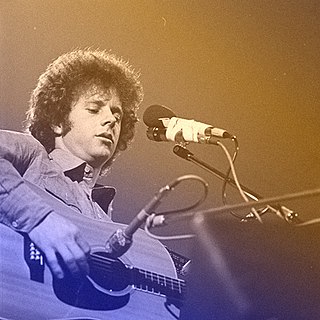
Christopher Hillman is an American musician. He was the original bassist and one of the original members of The Byrds, which in 1965 included Roger McGuinn, Gene Clark, David Crosby and Michael Clarke. With frequent collaborator Gram Parsons, Hillman was a key figure in the development of country rock, defining the genre through his work with The Byrds, The Flying Burrito Brothers, Manassas and the country-rock group The Desert Rose Band.

The Desert Rose Band was an American country rock band from California, founded in 1985 by Chris Hillman, with Herb Pedersen and John Jorgenson. The original lineup included Bill Bryson on bass guitar, JayDee Maness on pedal steel guitar, and Steve Duncan on drums. In the late 1980s and early 1990s, the band charted several hit singles on the US Billboard Hot Country Singles & Tracks charts until disbanding in February 1994.
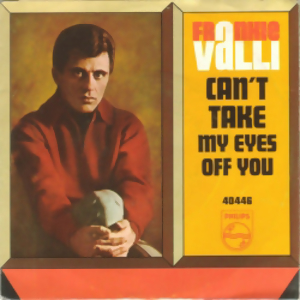
"Can't Take My Eyes Off You" is a 1967 song written by Bob Crewe and Bob Gaudio. It was recorded as a single by Frankie Valli. The song was among his biggest hits, earning a gold record and reaching No. 2 on the Billboard Hot 100 for a week. Gaudio was a bandmate of Valli's in the Four Seasons. It was Valli's biggest solo hit until he hit No. 1 in 1975 with "My Eyes Adored You".

American recording artist LeAnn Rimes has released 17 studio albums, ten compilation albums, one live album, one soundtrack album, three extended plays (EP's), 56 singles, nine Christmas singles and 15 promotional singles. Rimes has sold over 37 million records worldwide to date, with 16.5 million albums and 5.5 million singles certified by RIAA. Rimes was ranked the number 17 Best Selling Artist of the 1990-99 decade by Billboard. She was also ranked at number 184 on Billboard 200 Artists and number thirty-one on Country Artists of the 2000-09 decade.

The discography of American country pop singer Marie Osmond contains 12 studio albums, three compilation albums, one soundtrack album, one video album, six music videos, 33 singles and 2 album appearances. She first gained exposure on television with her siblings' group, The Osmonds. She then signed her own recording contract with MGM Records. Osmond specifically chose to be marketed towards the country field. In 1973, she released her debut single, "Paper Roses." The song reached number one on the Billboard Hot Country Songs chart and crossed into the top five of the Billboard Hot 100. Her debut studio album of the same name also topped Billboard's country albums chart and spent 20 weeks on the survey. It was also her highest charting album on the Billboard 200 all-genre chart, climbing to number 59. She followed this with 1974's "In My Little Corner of the World" and 1975's "Who's Sorry Now." Both singles reached the top 40 of the Billboard country songs chart. In addition, she released two more studio albums with MGM during this period. She then began a duet career with her brother during the latter half of the 1970s. However, in 1977 she recorded a solo album of pop music entitled This Is the Way That I Feel.

The discography of American country music artist Wynonna Judd contains nine studio albums, four compilation albums, two video albums, one live album, one extended play (EP), 43 singles, 11 music videos and one other-charting song. She achieved success as one half of the mother-daughter duo, The Judds. In 1991, the duo split and Wynonna signed a solo recording contract with MCA Records that year. In March 1992, her debut studio album entitled Wynonna reached number one on the Billboard Top Country Albums chart and number four on the Billboard 200. The album spawned three number one hits on the Billboard Hot Country Songs chart: "She Is His Only Need," "I Saw the Light" and "No One Else on Earth." The album also sold over five million copies. In 1993, it was followed by Tell Me Why, which certified platinum in the United States. It also topped the country albums chart and reached number five on the Billboard 200 It spawned five more top ten country hits, including the title track and "Rock Bottom."
'I Still Believe in You' is a song written by Chris Hillman and Steve Hill, and recorded by American country music group The Desert Rose Band. It was released in October 1988 as the second single from the album Running. The song was the second and final number one on the country chart for The Desert Rose Band. The single went to number one for one week and spent fifteen weeks on the country chart.
"One Step Forward" is a song written by Chris Hillman and Bill Wildes, and recorded by American country music group The Desert Rose Band. It was released in October 1987, as the third single from the album The Desert Rose Band. The song reached #2 on the Billboard Hot Country Singles & Tracks chart, behind "Tennessee Flat Top Box" by Rosanne Cash.
"She Don't Love Nobody" is a song written by John Hiatt, and first recorded by Nick Lowe and His Cowboy Outfit on the 1985 album The Rose of England. In 1989, American country music group The Desert Rose Band released their version as the third single from the album Running. It reached number 3 on the Billboard Hot Country Singles & Tracks chart.

"Story of Love" is a song written by Chris Hillman and Steve Hill, and recorded by American country music group The Desert Rose Band. The song was produced by Paul Worley and Ed Seay, and released in July 1990 as the third and final single from the band's third studio album Pages of Life.
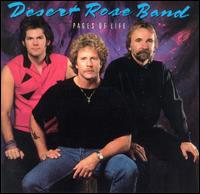
Pages of Life is the third studio album by the American country music/country rock group The Desert Rose Band. It was released January 16, 1990 via MCA/Curb, and produced by Paul Worley and Ed Seay.

"In Another Lifetime" is a song recorded by American country music group The Desert Rose Band. It was released in February 1990 as the second single from the band's third studio album Pages of Life. The song was written by Chris Hillman and Steve Hill, and produced by Paul Worley and Ed Seay.

Life Goes On is the fifth and final album by the country rock band The Desert Rose Band, released by Curb in 1993. The album, produced by Paul Worley and Ed Seay, was the only one from the band not to be issued in North America.

True Love is the fourth album by the country rock band The Desert Rose Band, released in 1991. The album was released by the Curb record label, failing to make an impact on the American Country charts.
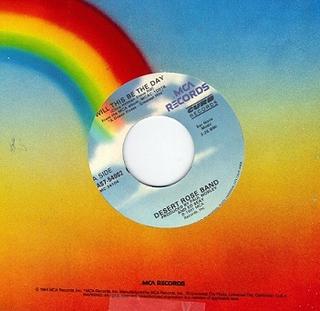
"Will This Be the Day" is a song recorded by American country music group The Desert Rose Band. It was released in January 1991 as the first single from their compilation album A Dozen Roses – Greatest Hits. The song was written by Chris Hillman and Steve Hill, and produced by Ed Seay and Paul Worley.
"What About Love" is a song by American country rock band The Desert Rose Band, which was released in 1993 as the lead single from their fifth and final studio album Life Goes On. The song was written by Chris Hillman and Steve Hill, and produced by Paul Worley and Ed Seay. "What About Love" peaked at No. 71 on the US Billboard Hot Country Singles & Tracks chart.

"Come a Little Closer" is a song by the American country rock band The Desert Rose Band, which was released in 1991 as the second and final single from their first compilation album A Dozen Roses – Greatest Hits. It was written by Chris Hillman and Steve Hill, and produced by Ed Seay and Paul Worley.

"Twilight Is Gone" is a song by the American country rock band The Desert Rose Band, released in 1991 as the second and final single from their fourth studio album True Love. It was written by Chris Hillman and Steve Hill, and produced by Tony Brown.

The discography of American country music singer-songwriter Loretta Lynn includes 50 studio albums, 36 compilation albums, two live albums, five video albums, two box sets and 24 additional album appearances. Briefly recording with the Zero label, she signed an official recording contract with Decca Records in 1961, remaining there for over twenty years The first under the label was her debut studio album Loretta Lynn Sings (1963). It peaked at number two on the Billboard Top Country Albums survey. Lynn would issue several albums a year with her growing success, including a duet album with Ernest Tubb (1965), a gospel album (1965), and a holiday album (1966). Her seventh studio album You Ain't Woman Enough (1966) was her first release to top the country albums chart and to chart within the Billboard 200. Other albums to reach number one during this period were Don't Come Home a Drinkin' (1967) and Fist City. Don't Come A'Drinkin would also become Lynn's first album to certify gold by the Recording Industry Association of America (RIAA).
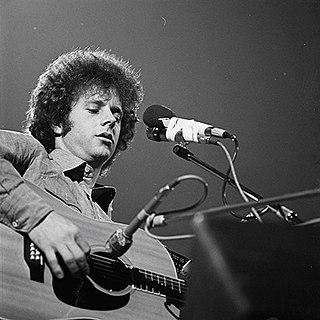
Chris Hillman is an American musician and songwriter. In addition to his solo albums and his recordings with the Byrds, the Flying Burrito Brothers, and the Desert Rose Band, he has been featured as a collaborator with and composer for many other artists.
















